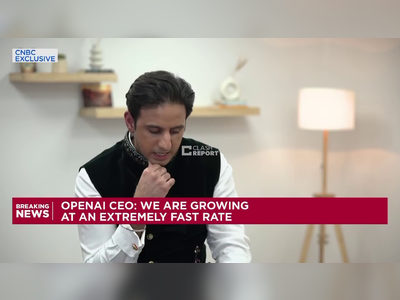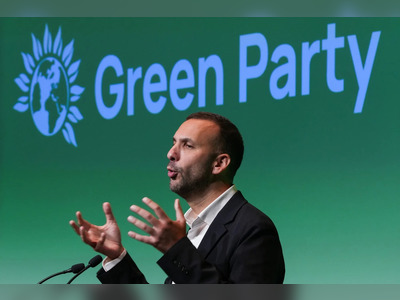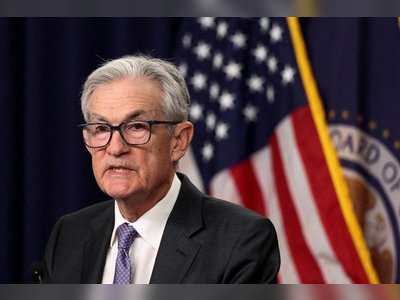
Germans Vote Amidst Rising Far-Right Influence and Global Tensions
The legislative elections in Germany reflect a fractured political landscape, with the conservative CDU favored and the far-right AfD gaining ground.
Germany went to the polls on Sunday, February 23, 2025, in a closely watched legislative election characterized by a significant rise in far-right sentiment and the looming influence of global events, particularly the return of Donald Trump to American political life.
More than 59 million voters were eligible to cast their ballots by 18:00 local time, with preliminary exit poll results expected shortly thereafter.
The elections occur during a turbulent period for Germany, as it grapples with an economic recession and threats to its transatlantic relations.
Friedrich Merz, leader of the Christian Democratic Union (CDU), emerged as the main candidate for chancellorship, reportedly garnering around 30% of the vote in the latest polls.
Merz has asserted that the future of Germany depends on its ability to navigate these challenges, which include a potential trade conflict with Washington and an evolving security landscape in Europe amidst the ongoing war in Ukraine.
The AfD (Alternative for Germany), which campaigns on anti-immigrant and pro-Russian platforms, is projected to achieve at least 20% of the vote, a doubling from its previous performance in 2021. The party's rise has been bolstered by recent violent incidents in Germany attributed to migrants, including a reported stabbing at Berlin's Holocaust Memorial by a Syrian refugee.
This election also comes on the eve of the third anniversary of Russia's invasion of Ukraine, an event that has had profound repercussions for Germany, including a loss of gas supplies from Russia and the hosting of over a million Ukrainian refugees.
The ongoing conflict has raised concerns about a potential peace deal that could marginalize Ukrainian interests and further complicate Europe's stability.
Notably, the influence of Donald Trump's administration and its supporters has cast a shadow over these elections.
Elon Musk, a prominent supporter of Trump, has publicly endorsed the AfD's Alice Weidel, sharing messages on social media that highlight her candidacy.
Christian, an engineer attending an AfD meeting, commended Weidel as a frontrunner who addresses often-ignored issues, reflecting a growing discontent among some voters with traditional party platforms.
The rise of the far-right has fueled fears among conservatives like Mario Stallman, who expressed concerns over the broader implications of this trend for Europe.
In a complex parliamentary system, the eventual formation of a new government may take weeks or even months, given that the CDU would need to ally with other parties, likely the Social Democratic Party (SPD), where projections have indicated support around 15%, potentially marking its worst election outcome since World War II.
Should no party achieve a clear majority, the contentious political landscape suggests the possibility of lengthy negotiations to establish a stable coalition, especially in light of the urgent global challenges that Germany faces.
More than 59 million voters were eligible to cast their ballots by 18:00 local time, with preliminary exit poll results expected shortly thereafter.
The elections occur during a turbulent period for Germany, as it grapples with an economic recession and threats to its transatlantic relations.
Friedrich Merz, leader of the Christian Democratic Union (CDU), emerged as the main candidate for chancellorship, reportedly garnering around 30% of the vote in the latest polls.
Merz has asserted that the future of Germany depends on its ability to navigate these challenges, which include a potential trade conflict with Washington and an evolving security landscape in Europe amidst the ongoing war in Ukraine.
The AfD (Alternative for Germany), which campaigns on anti-immigrant and pro-Russian platforms, is projected to achieve at least 20% of the vote, a doubling from its previous performance in 2021. The party's rise has been bolstered by recent violent incidents in Germany attributed to migrants, including a reported stabbing at Berlin's Holocaust Memorial by a Syrian refugee.
This election also comes on the eve of the third anniversary of Russia's invasion of Ukraine, an event that has had profound repercussions for Germany, including a loss of gas supplies from Russia and the hosting of over a million Ukrainian refugees.
The ongoing conflict has raised concerns about a potential peace deal that could marginalize Ukrainian interests and further complicate Europe's stability.
Notably, the influence of Donald Trump's administration and its supporters has cast a shadow over these elections.
Elon Musk, a prominent supporter of Trump, has publicly endorsed the AfD's Alice Weidel, sharing messages on social media that highlight her candidacy.
Christian, an engineer attending an AfD meeting, commended Weidel as a frontrunner who addresses often-ignored issues, reflecting a growing discontent among some voters with traditional party platforms.
The rise of the far-right has fueled fears among conservatives like Mario Stallman, who expressed concerns over the broader implications of this trend for Europe.
In a complex parliamentary system, the eventual formation of a new government may take weeks or even months, given that the CDU would need to ally with other parties, likely the Social Democratic Party (SPD), where projections have indicated support around 15%, potentially marking its worst election outcome since World War II.
Should no party achieve a clear majority, the contentious political landscape suggests the possibility of lengthy negotiations to establish a stable coalition, especially in light of the urgent global challenges that Germany faces.











